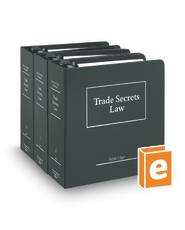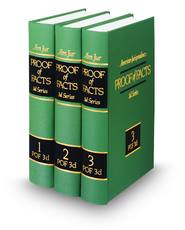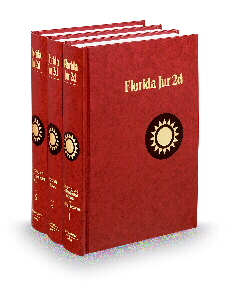
Secondary sources discuss and analyze legal doctrines, and are an excellent place to start when trying to understand an unfamiliar area of the law. They also provide a launchpad for finding other secondary materials and primary sources. (Source: Legal Research in a Nutshell)
§1(4) of the UTSA defines a 'Trade Secret' as follows:
'Trade Secret' means information, including a formula, pattern, compilation, program, device, method, technique, or process, that:
(i) derives independent economic value, actual or potential, from not being generally known to, and not being readily ascertainable by proper means by,other persons who can obtain economic value from its disclosure or use, and
(ii) is the subject of efforts that are reasonable under the circumstances to maintain its secrecy.
 Milgrim on Trade Secrets by
Milgrim on Trade Secrets by Treatises are useful because they provide an in-depth overview of a specific area of law. One of the most popular treatises for trade secret law is Milgrim on Trade Secrets, which is listed below. I also provided links to a few other helpful treatises depending on whether you have access to Lexis Nexis, West Law or Bloomberg Law.
 Trade Secrets Law by
Trade Secrets Law by  Trade Secrets: A State-by-State Survey by
Trade Secrets: A State-by-State Survey by  Trade Secrets Throughout the World, 2012-2013 ed. by
Trade Secrets Throughout the World, 2012-2013 ed. by  American Jurisprudence Proof of Facts, 3d. Vol. 14 by
American Jurisprudence Proof of Facts, 3d. Vol. 14 by  Florida Jurisprudence, 2d
Florida Jurisprudence, 2dLegal Encyclopedias provide a few hundred articles that discuss broad areas of the law such as contract law or property law. They generally do not hold any persuasive weight but they are excellent sources for an introduction to an area of law. Below I have listed a couple of links to legal encyclopedias and their relevant articles to trade secret law.
Source: Legal Research in a Nut Shell
59 ALR 4th 641, What is “Trade Secret” So as to Render Actionable Under State Law Its Use or Disclosure by Former Employee.
53 ALR 4th 1046, What is Computer “Trade Secret” Under State Law.
27 ALR 4th 773, What Constitutes “Trade Secrets” Exempt from Disclosure Under State Freedom of Information Act.
92 ALR 3rd 138, Disclosure of Trade Secret as Abandonment of Secrecy.
43 ALR 2nd 94, Enforceability of Restrictive Covenant, Ancillary to Employment Contract, as Affected by Territorial Extent of Restriction.
165 ALR 1453, Implied Obligation of Employee Not to Use Trade Secrets or Confidential Information for His Own Benefit or that of Third Persons After Leaving the Employment.
98 ALR 963, Validity and Enforceability of Restrictive Covenants in Contracts of Employment.
 Trade Secret Protection in the Information Age by
Trade Secret Protection in the Information Age by 